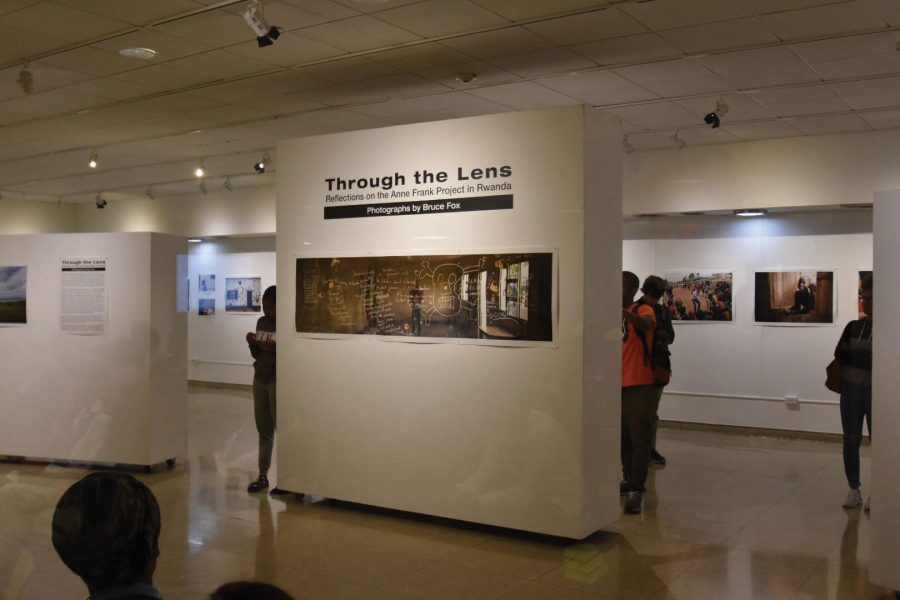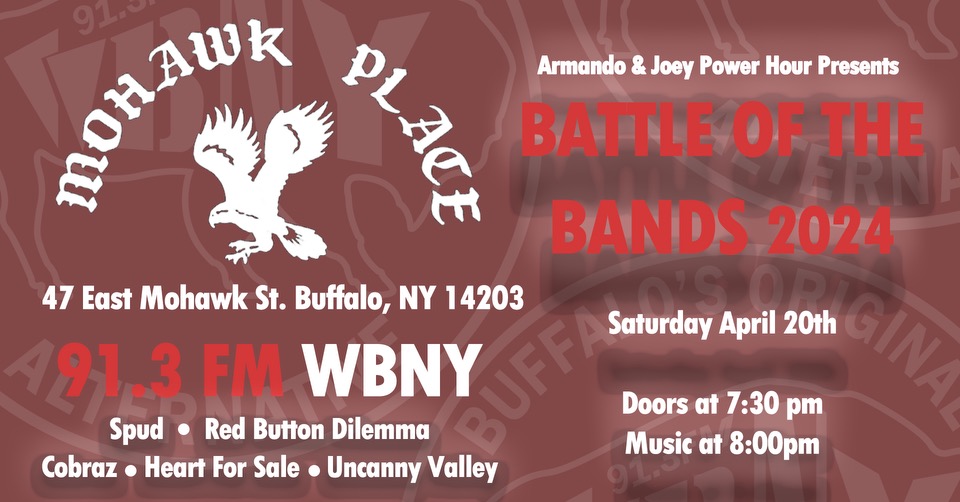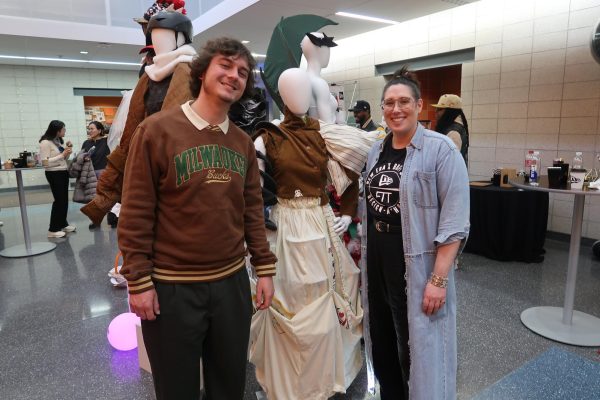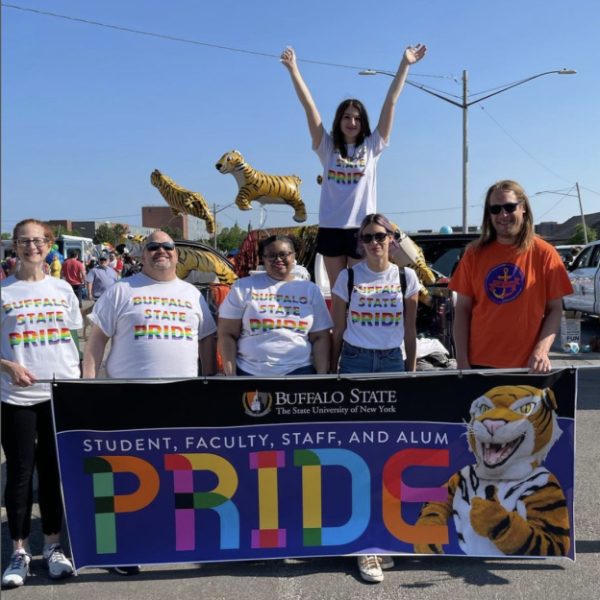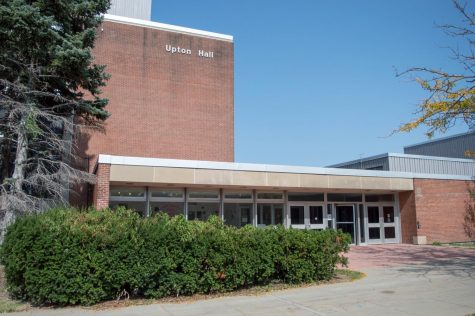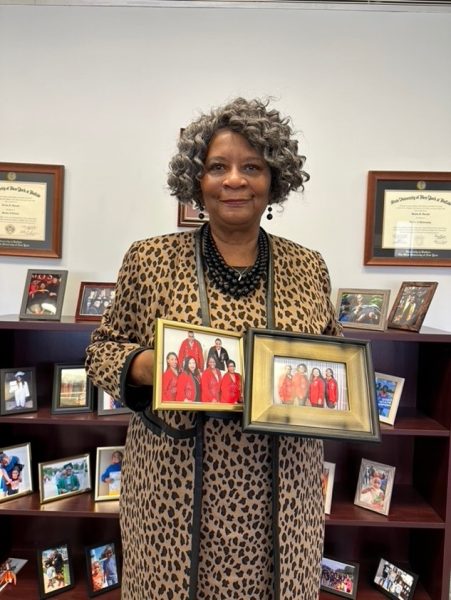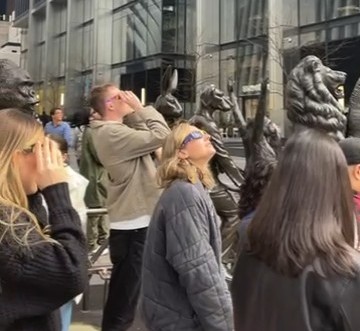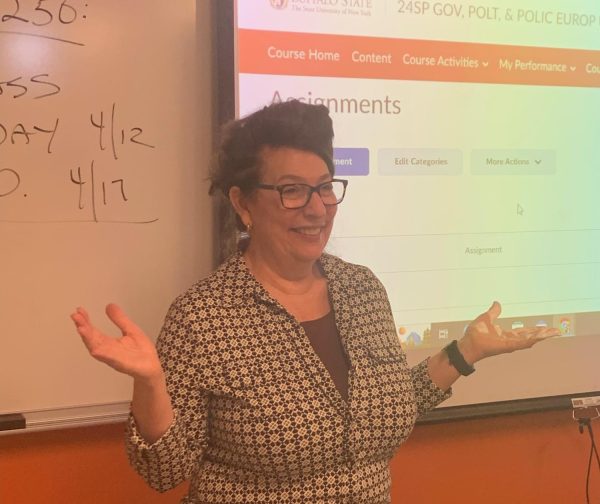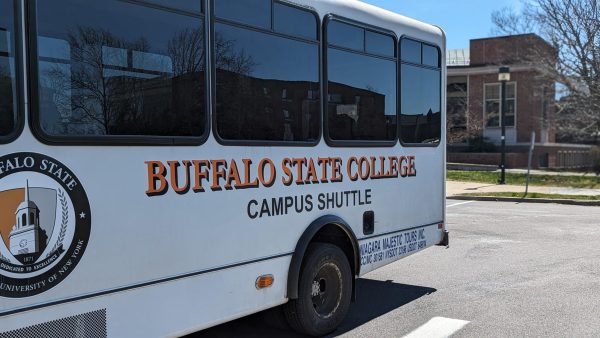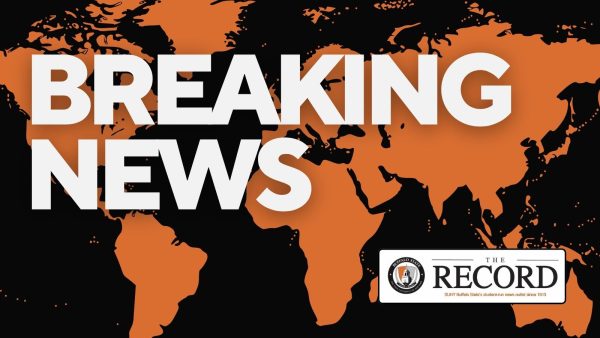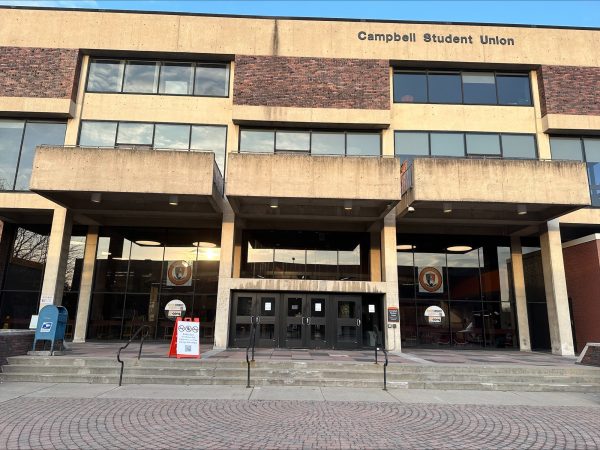Anne Frank Project’s Social Justice Festival has strong turnout for 8th year
Festivalgoers view Buffalo State photographer Bruce Fox’s images of his various experiences in Rwanda.
October 5, 2016
SUNY Buffalo State held the 8th annual Anne Frank Project Social Justice Festival on Sept. 28 and 29. This year, there were several performances, workshops and guest speakers for students and faculty to attend.
Sessions were packed with viewers for both days, some with standing room only.
“It’s great. This is probably the most people we’ve had in a few years for certain sessions,” said Emma Suddon, house manager and director of admissions.
Suddon graduated in May with a theater degree.
“The most people today were at our Survivor Panel,” Suddon said. The panel featured survivors from the Holocaust and Democratic Republic of the Congo.
Suddon’s favorite exhibit was of 20 paintings of Bhutanese refugees located in the Social Hall.
“I think that was a great edition to the festival this year,” Suddon said.
Several art exhibits were on display, including “Nine American Boys,” the work of Alice Pennisi, in the Margaret E. Bacon Student Gallery. The work featured oil paintings of the Scottsboro boys, nine African Americans from the ages of 12 to 19 who were wrongfully convicted of raping two white women in 1931 in Alabama. Within 15 days the boys were given death sentences, while the 12-year-old was given a life-sentence in prison.
Pennisi wants the focus of her work to enable the viewer to think about how colored youth are treated.
Pennisi, an associate professor of art education, gave a brief talk after the viewing of how race is viewed in our society. She told a story of researchers who studied the eye movement of Pre-K teachers watching over students. Unknowingly, the teachers always kept a closer watch on the young black boy.
The lesson being, “If you look for something in a certain place, that’s where you’re going to find something,” Pennisi said.
Following the art viewing and talk, Marc Rummenie and Kara Oliver from the National Federation for a Just Community gave an interactive presentation.
“No one wants to get in front of a room of strangers and share your deepest fears,” said Rummenie, the director of the youth program.
But that’s just what happened.
Oliver, a program specialist, asked questions so one could sit or stand based on experiences with safety, law enforcement interactions and race issues.
The interactive experience was designed to unite and connect people, even with so many differences.
“In Western New York, you know what segregation looks like and feels like,” Rummenie said. “We can ask ourselves, ‘Can I be myself here?’ in these situations.”
“We have to get past these situations,” Rummenie said, referencing a poster he had hung up behind him with the quote, “The past is never dead.”
Question after question read by Oliver, all different kinds of people were standing up.
“When we look around, many of us share the same experiences,” Oliver said. “This is real, real stuff.”
“These nine young men affect us today, what happened a few weeks ago affect us today,” Rummenie added.
“It really did hit home on a lot of subjects with things like race, imprisonment, and dealing with family members that have been wrongfully convicted of crimes,” said junior theater major Elijah Tyner. “It’s a lot to take in and a lot to decompress.”
Tyner volunteers for the Anne Frank Project through a theater class called Practicum, which provides real-life training for different aspects of theater.
Tyner has also volunteered in Through the Lens, and was in the play “Hello My Name is __,” which is performing in local Buffalo high schools this year. Tyner is glad the play is traveling to high schools because he believes sensitive subjects are important to talk about, not just at a college level.
“What’s so great about the Anne Frank Project is that it’s really about opening wounds that people are afraid to talk about, which is very admirable,” Tyner said. “It really opens up people’s minds and shows that it’s okay to talk about things that are going on with you, and it’s okay to understand what’s going on with others.”
The Nine American Boys series got specifically emotional for Tyner.
“It gets real and it gets tough, but it does connect us all, because everyone has someone that has been taken away from them” Tyner said.
Tyner wishes for all people to be able to experience such a unifying festival, because all people can find connections in a world that can sometimes feel exclusive.
“If you ever need to talk, open up, or you feel like you can’t share what you’re going through, don’t,” Tyner said, “Open up, find someone; connect, because that is the best way to change the world. If you don’t like it the way it is now, that’s the best way to make it better.”
email: [email protected]


